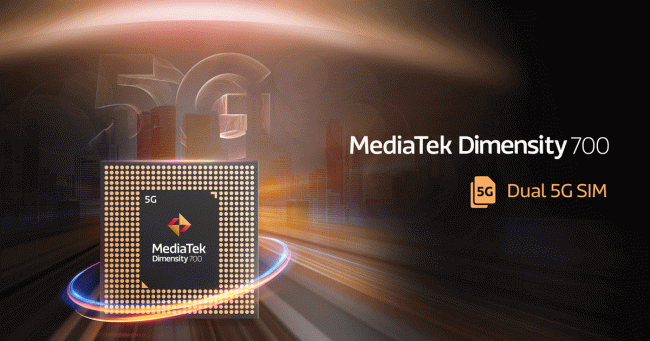One of the things I’ve come to appreciate, as I’ve learned more about MediaTek, is how many of the everyday electronic items I use — and depend on — have MediaTek chips in them. Yet, I doubt that I’ve ever given much thought about what was making these devices work, which honestly says a lot about MediaTek’s ubiquitousness.

It’s common to consider or compare processors when purchasing a phone or a laptop; heck, I make a point to mention who makes them and what their speeds are like in every phone or laptop review that I do. But what about the other smart items in your home? Have you ever thought about what how Alexa is able to answer you and follow your orders? Or why your smart plug is able to turn on your living room lights when you tell Google Assistant to do it? Or what makes your fancy new workout system with its virtual trainer so smart? If an item plugs in and does more than simply turn on, it’s likely that it has a microprocessor chip in it; it’s also highly possible that MediaTek made the chip that item is using.
The pandemic forced many of us to slow things down. Sheltering in place put a new emphasis on making our homes more comfortable and ensuring that our tech could meet our suddenly expanded work, school, leisure, and fitness needs. Case in point: today, MediaTek held its second annual Executive Summit. Last year, I attended in person, but this year it was all done virtually with over 200 people on a single Zoom call. It’s weird to think that this is our new normal, but as I listened to the presenters, I couldn’t help but consider how our needs have changed in the last year and how MediaTek was already positioned to meet many many of them, now that we’ve come to rely on our tech more than ever.
Without even mentioning smartphones, laptops, Chromebooks, or tablets, MediaTek processors are found in a huge selection of products from brands we all know. Some of those brands include Tonal, NordicTrack, Peloton, D-Link, Amazon Alexa, Amazon Firesticks, Meross, Lenovo, Samsung, Vizio, Yamaha, JBL … the list goes on and on. As I said, MediaTek is everywhere, and half of the time, you probably aren’t even aware that they power the product you are using. This year alone, MediaTek has already shipped over 10 million chips for use in Wi-Fi 6 routers, which have become so important as we’ve needed the fastest speeds to work with from home.
When we write about MediaTek on Gear Diary, a lot of times, it’s because of a new 5G chip that they’ve just released. And to be sure, there are new 5G MediaTek chips to talk about today.
The Dimensity 700 5G smartphone chipset was just announced. It aims to bring 5G capabilities and experiences to the mass-market so that 5G features can be enjoyed by everyone, not just those who have the budget to get an expensive flagship or even mid-tier device. The Dimensity 700 chpset utilizes MediaTek’s 5G UltraSave, which uses advanced power-saving technologies to improve battery life. It can power crisp, smooth scrolling 90Hz displays that are excellent for gaming. It can support 48- or 64-megapixel main cameras with the Ai-enhanced bokeh, color, and beauty features we expect to find on our smartphones, and it has “integrated hardware-based imaging accelerators [to] enable multi-frame noise reduction so users can capture high-quality shots with low noise, even at night. It can also support voice assistants from global brands like Alibaba, Amazon, Bidu, Google, and Tencent so that device manufacturers will have more configuration options. A chip like this can basically democratize 5G, putting all of that goodness to everyone — not just those who are willing to drop $800+ on their next 5G smartphone.
Also announced were the MT8192 and MT8195 chipsets for next-generation Chromebooks. With Windows laptops costing $600 and up, many remote workers, parents, and schools have opted to purchase relatively inexpensive Chromebooks to stay connected. MediaTek chipsets are already in many of the Chromebooks people use every day, including ones made by Acer, Asus, HP, and Lenovo, and they do a great job as it is, but Mediatek isn’t done. As Jerry Yu, Corporate Vice President at Mediatek, said, “the MT8192 and MT8195 give brands more features to design powerful Chromebooks with innovative form factors that can flip, fold or detach, are slim and lightweight and have great battery life.”
The 7nm MT8192 chipset will be used in mainstream devices, while the 6nm MT8195 chipset will be used in premium devices. Each of the new chipsets will have an integrated high-performance AI processing unit so that their devices can handle the wide variety of voice and vision-based applications that we are all using. Whether it’s seamlessly processing voice ID recognition and voice control, speech and image recognition, speech to text, live translation, object recognition, background removal, noise reduction, image and video segmentation, gesture control and Google AR Core-based enhancements, these chips APU will be able to do it in real-time. We’ll see Chromebooks that are powered by the MT8192 around the second quarter of next year. The MT8195 will be able to power premium Chromebooks, smart displays, tablets, and other smart devices, and we’ll see those available at a later date.
So yeah, MediaTek is a huge 5G chipset manufacturer, and they are essential in the notebook and smartphone, tablet, notebook, and Chromebook space, but that’s not all they are, nor is it all they do. MediaTek is everywhere, quietly making some of your favorite smart devices even smarter.
You can check out a good selection of some of the devices that are powered by MediaTek here; you can learn more about MediaTek in general here.
